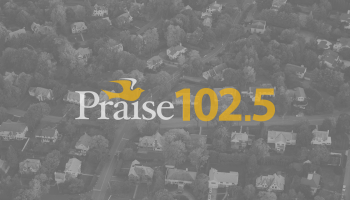VIA: New York Times
Each had crossed the border years before, smuggled across the desert by a coyote, never imagining the journey would lead to a drab and dusty clinic on the ninth floor of Grady Memorial Hospital in Atlanta.
Some knew before the crossing that they had diabetes or lupus or high blood pressure, but it was only after they arrived that their kidneys began to fail. To survive, they needed dialysis at a cost of about $50,000 a year, which their sporadic work as housekeepers, painters and laborers could not begin to cover.
And so they turned to Grady, a taxpayer-supported safety-net hospital that would provide dialysis to anyone in need, even illegal immigrants with no insurance or ability to pay. Every Tuesday, Thursday and Saturday morning, the 15 or so patients would settle into their recliners, four to a room, and while away the monotonous three-hour treatments by chitchatting in Spanish.
That all changed on Oct. 4, when the strapped public hospital closed its outpatient dialysis clinic, leaving 51 patients — almost all illegal immigrants — in a life-or-death limbo.
For Grady, which has served Atlanta’s poor for 117 years, it was an excruciating choice, a stark reflection of what happens when the country’s inadequate health care system confronts its defective immigration policy.
Like other hospitals, particularly public hospitals, Grady has been left to provide costly treatments to nonpaying illegal residents who most likely could not have obtained such care in their home countries. American taxpayers and health care consumers have borne the expense.
Over time, the mounting losses have compromised Grady’s charitable mission, forcing layoffs, increases in fees and the elimination of services.
“Years and years of providing this free care has led Grady to the breaking point,” said Matt Gove, one of the hospital’s senior vice presidents. “If we don’t make the gut-wrenching decisions now, there won’t be a Grady later. Then, everyone loses.”
But for the dialysis patients, the sudden end to their reassuring routine has prompted a panic.
“We didn’t know what to do,” said Ignacio G. Lopez, 23, who had been sustained by the clinic for more than three years. “We can pass away if we stay like two weeks without dialysis. They were just sending us out to die.”
The chairman of Grady’s recently reconstituted board, A. D. Correll, has said the hospital would not let that happen. “We made a commitment right up front that people are not going to die on the street because of these actions,” said Mr. Correll, a former chairman of the Georgia-Pacific Corporation and a prominent civic leader here.
Soccer and Telenovelas
In fact, the future for many of the patients remains uncertain. Like most of the country’s estimated 11 million illegal immigrants, they have little access to continuing health care, a reality not addressed by the legislation now under discussion in Washington.
Across the years, the Grady dialysis patients had forged a community, a family, really, of people who share a history and language, as well as a life-threatening condition. As the machines cleansed the toxins from their blood, they would talk about the scarcity of work, the ruthlessness of their disease and their hopes for a transplant. Some would sleep, while others crooned folksongs to drown out the snores.
Any given morning might find Mr. Lopez bickering with Fidelia G. Perez about whether to watch their soap operas, or telenovelas, in English or Spanish. From another chair, Rosa Lira, a frail grandmother, would look up from her prayer book to boast of the previous night’s exploits by Club America, her favorite Mexican soccer team. Rosa Palma de Gamez, from El Salvador, would grin when Ismael Sagrero arrived with his trademark greeting — “Hola-hola!” — which had become his nickname.
Now the patients are trying desperately to figure out their next steps.
With limited exceptions, illegal immigrants are ineligible for public insurance programs like Medicaid and Medicare and often cannot afford private coverage. When major illness strikes, they have few options but to go to emergency rooms, which are required by federal law to treat anyone whose health is deemed in serious jeopardy.
Officials at Grady, which will provide more than $300 million in uncompensated care this year, estimate that as many as a fifth of its uninsured patients are illegal immigrants. Although the numbers are elusive, a national study by the RAND Corporation concluded that illegal immigrants account for about 1.3 percent of public health spending.
The recession has prompted some state and local governments to pare programs that benefit illegal immigrants. And although illegal immigrants may account for about seven million of the country’s 46 million uninsured, the health care bills being negotiated by Congress exclude them from expansions of subsidized public insurance. (The House bill that passed on Nov. 7 would allow illegal immigrants to buy policies at full cost on government-run exchanges, while legislation being considered in the Senate would forbid it.)
Calling it “a horrible situation,” Mr. Correll said that governments at all levels had decided that immigrants were not their problem. “But somehow,” he said, “they’ve become Grady’s problem, which seems totally unfair.”
Read more here.














